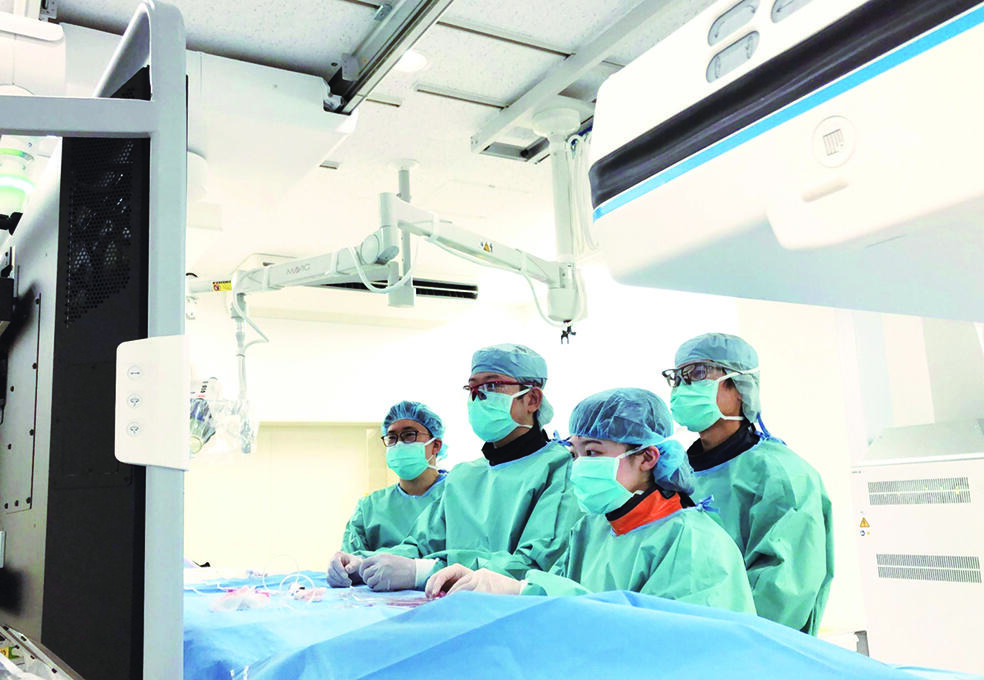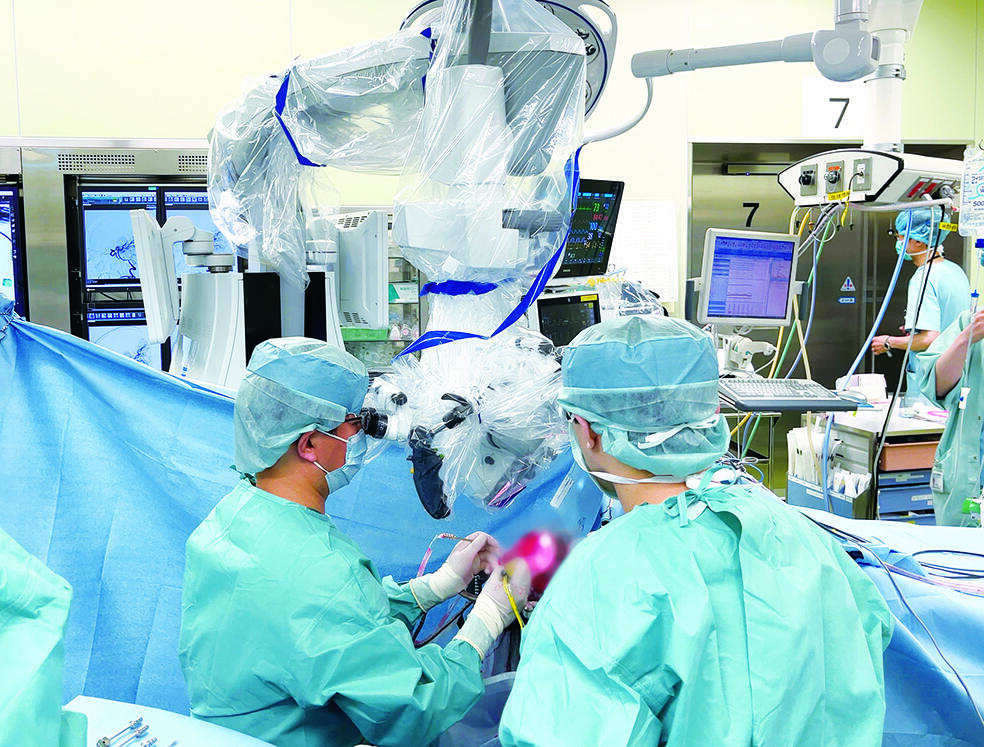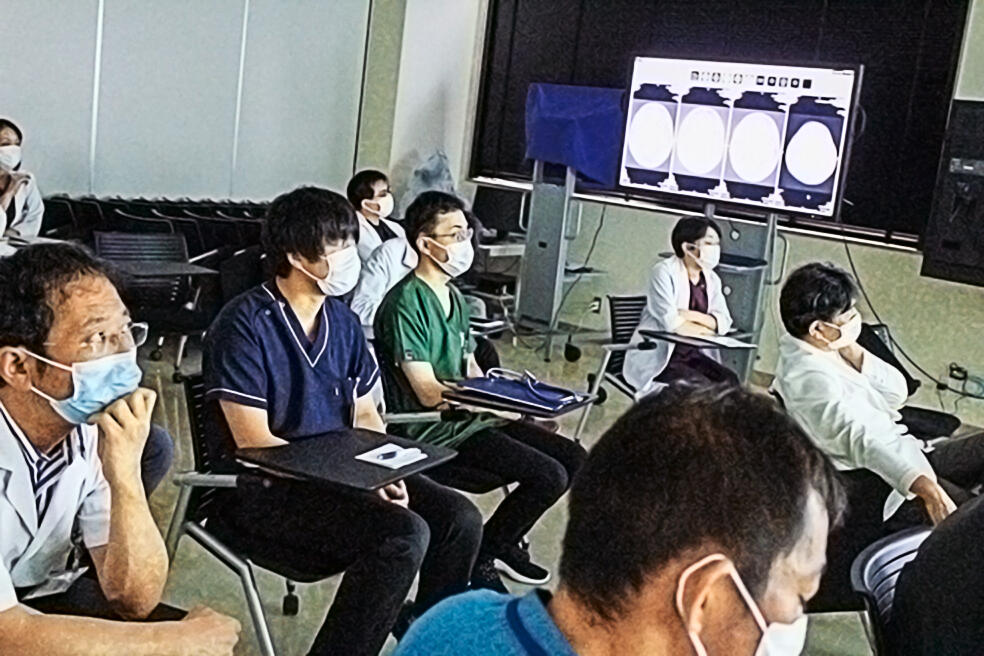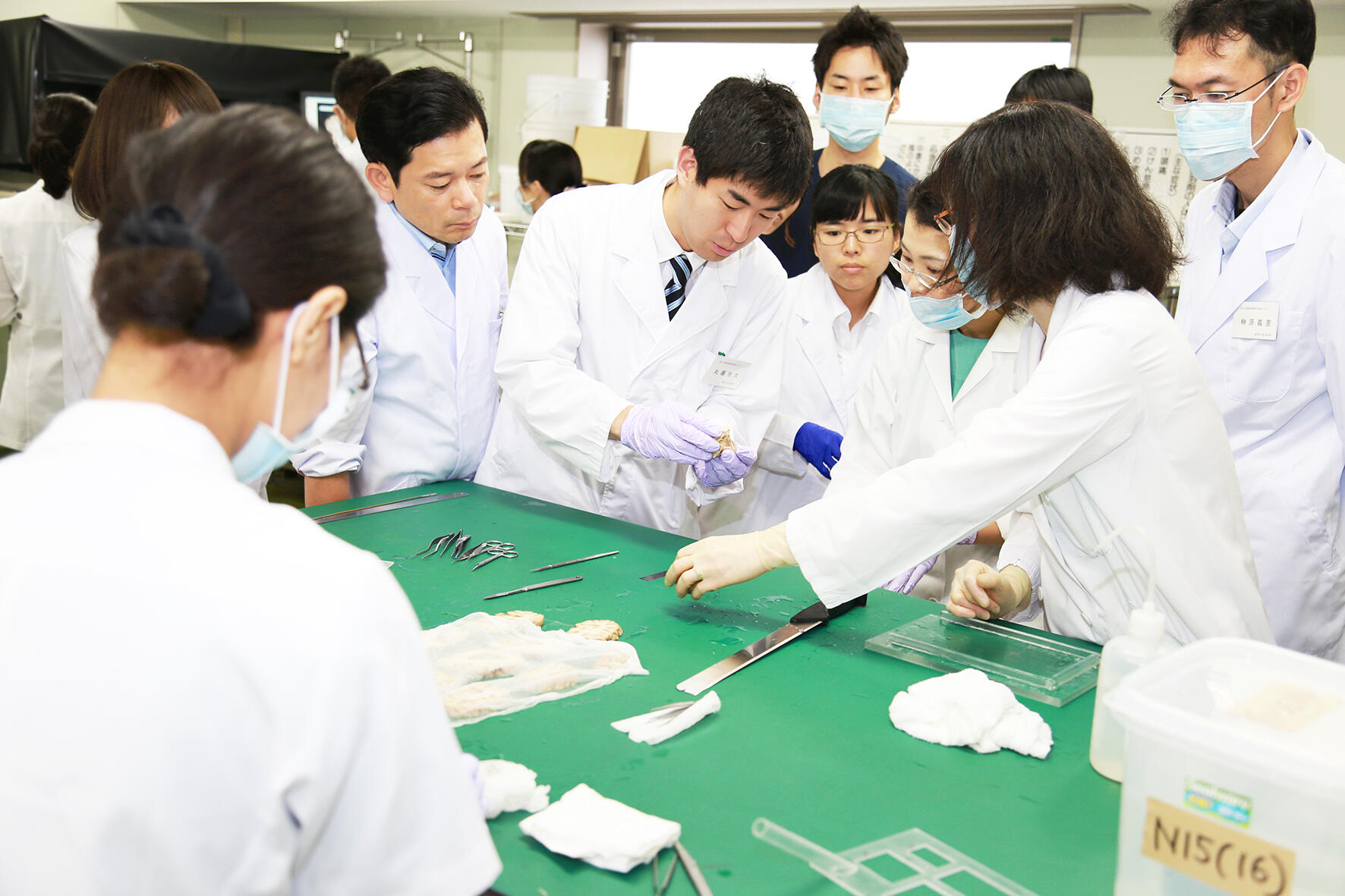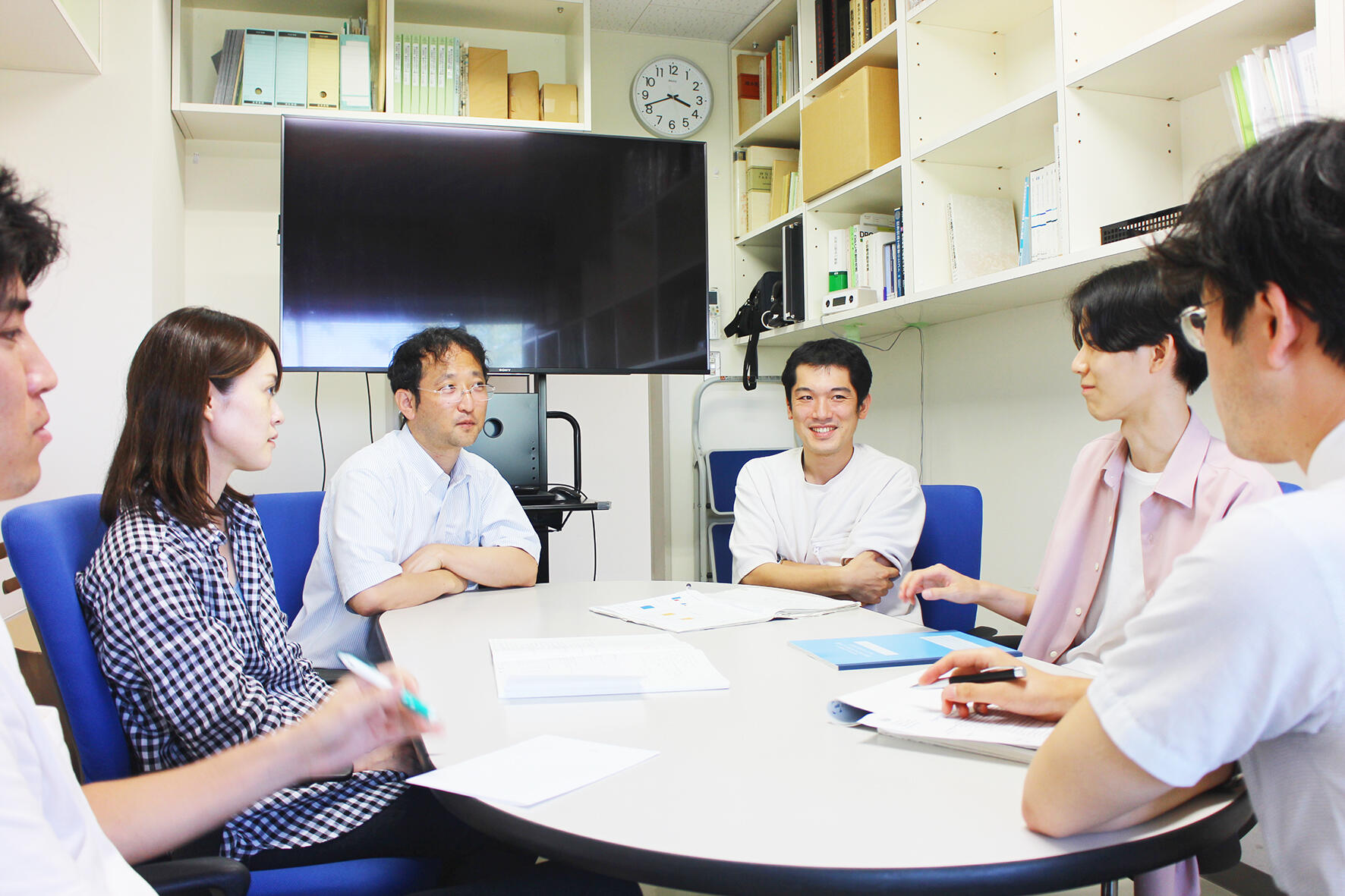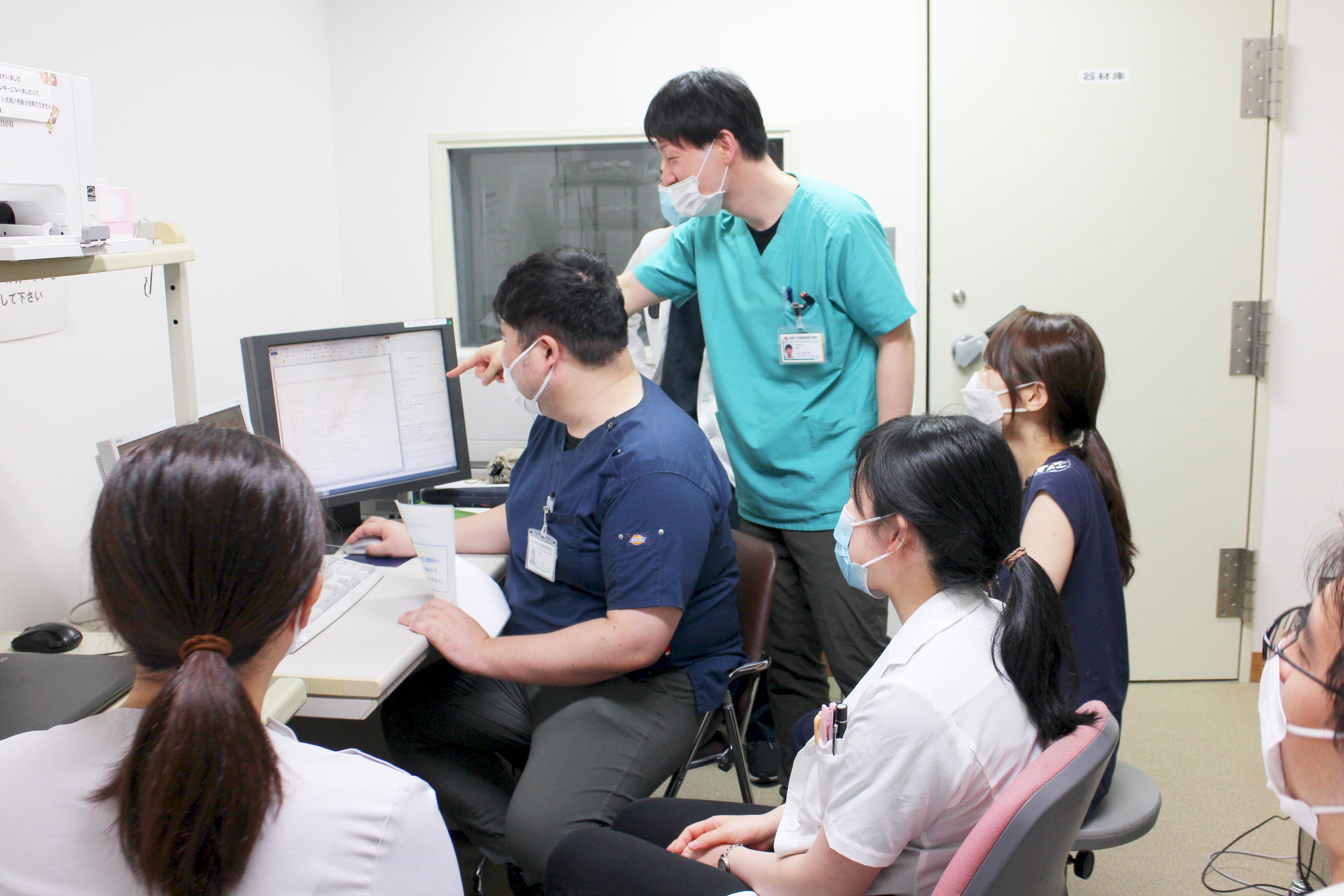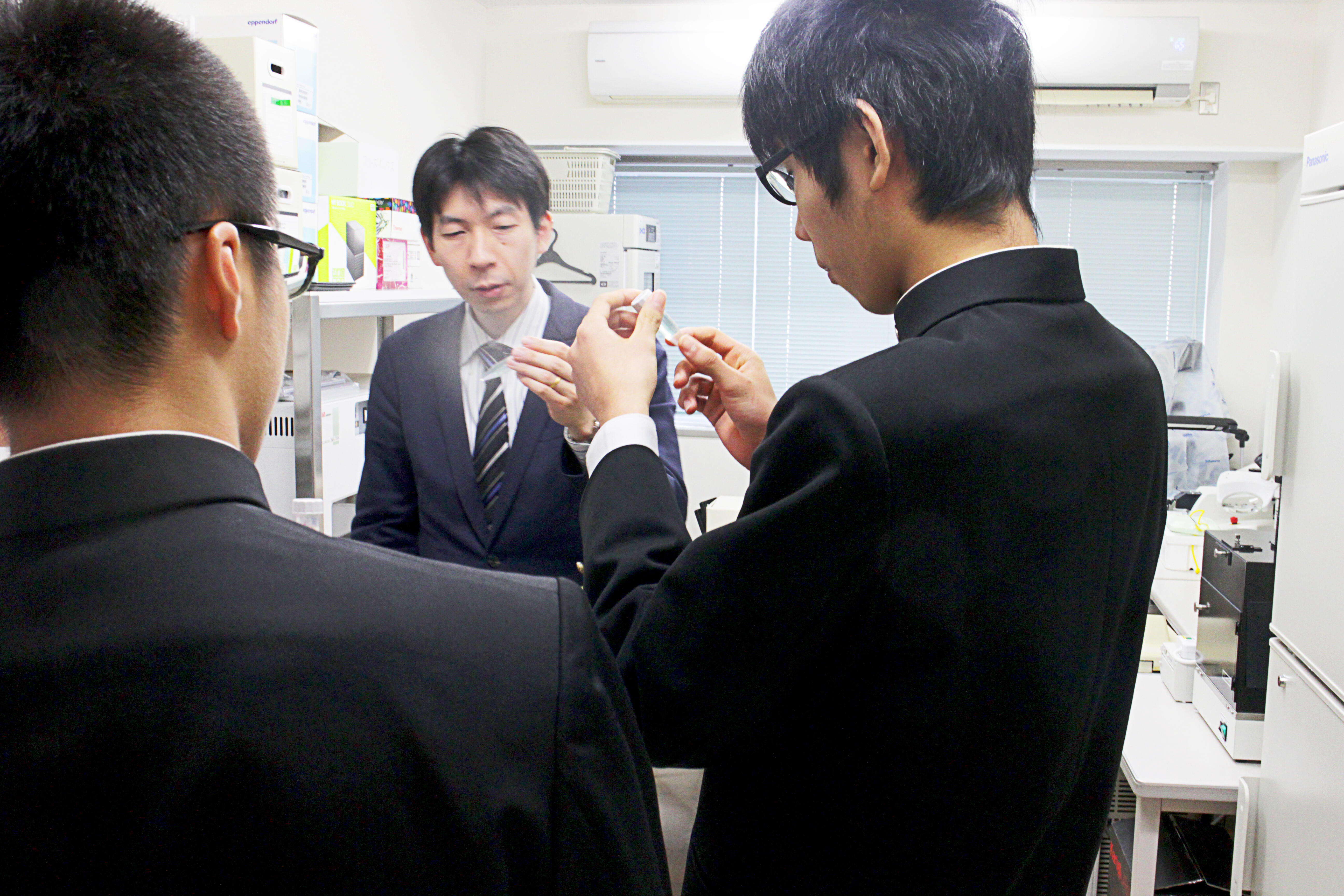The two departments of neurosurgery and neurology offer medical care, but what sets them apart is that all their activities, including outpatient care, hospital rooms, operating rooms, and x-ray rooms, take place within Niigata University Hospital. This natural arrangement reflects the significance of the cranial nervous system, which is integral to the human body. These two departments maintain continuous collaboration with related clinical departments in the Faculty of Medicine to ensure patients receive the most appropriate treatment.
The Neurosurgery Department conducts clinical consultations for outpatients in the morning hours on Mondays and Wednesdays. We receive referrals from hospitals in and around Niigata for a variety of cases, including brain tumors, cerebrovascular disorders, and pediatric congenital deformities. Currently, we have a total of 30 beds available for inpatient care, and we perform approximately 400 brain surgeries each year. This spring, we introduced new operating microscopes and cerebral angiography equipment, and the entire Neurosurgery team is dedicated to providing treatment, including cutting-edge and highly complex surgeries.
The Neurology Department offers outpatient care on Monday, Tuesday, Wednesday, and Friday mornings. Patients seek care from both within Niigata and other regions of Japan. In the fiscal year 2022, we treated a total of 11,740 outpatients and admitted 11,520 inpatients. Our patient cases encompass a wide range, including dementia, demyelination, degenerative disorders, metabolic conditions, and cerebrovascular diseases.
Both of these clinical departments also maintain close relationships with other hospitals, both within and outside Niigata Prefecture. The Neurosurgery department collaborates with 29 hospitals, while the Neurology department works closely with 26 hospitals, playing central roles in the medical practices of these affiliated institutions.
The Department of Pathology conducts pathological examinations for over 400 surgical cases and 40 to 50 autopsy cases annually, in response to requests from both the two clinical departments and other institutes across Japan.





